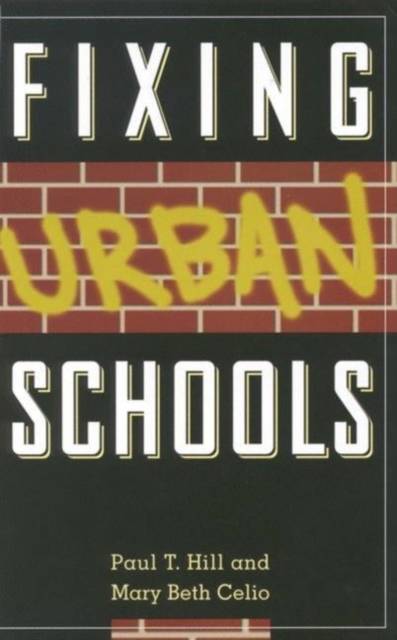
- Afhalen na 1 uur in een winkel met voorraad
- Gratis thuislevering in België vanaf € 30
- Ruim aanbod met 7 miljoen producten
- Afhalen na 1 uur in een winkel met voorraad
- Gratis thuislevering in België vanaf € 30
- Ruim aanbod met 7 miljoen producten
Omschrijving
Every year, in one out of three big cities, the school superintendent leaves his or her job, sending local community leaders back to square one. Cleveland, Baltimore, and Washington, D.C., are struggling to recreate their failed school systems, and many more cities are likely to follow. City leaders need more than new superintendents. They need stable reform strategies strong enough to move an entrenched system. Unfortunately, it is not clear where they can turn for help. Education experts are deeply divided about whether teacher retraining or new standards are enough to reform a struggling city system, or whether more fundamental changes, such as family choice and family-run schools, are needed. Based on new research, this book identifies the essential elements of reform strategies that can transform school performance in big cities beset by poverty, social instability, racial isolation, and labor unrest. It also suggests ways that local leaders can assemble the necessary funding and political support to make such strategies work.
"Specificaties
Betrokkenen
- Auteur(s):
- Uitgeverij:
Inhoud
- Aantal bladzijden:
- 128
- Taal:
- Engels
Eigenschappen
- Productcode (EAN):
- 9780815736134
- Verschijningsdatum:
- 1/08/1998
- Uitvoering:
- Paperback
- Formaat:
- Trade paperback (VS)
- Afmetingen:
- 152 mm x 229 mm
- Gewicht:
- 199 g

Alleen bij Standaard Boekhandel
Beoordelingen
We publiceren alleen reviews die voldoen aan de voorwaarden voor reviews. Bekijk onze voorwaarden voor reviews.











